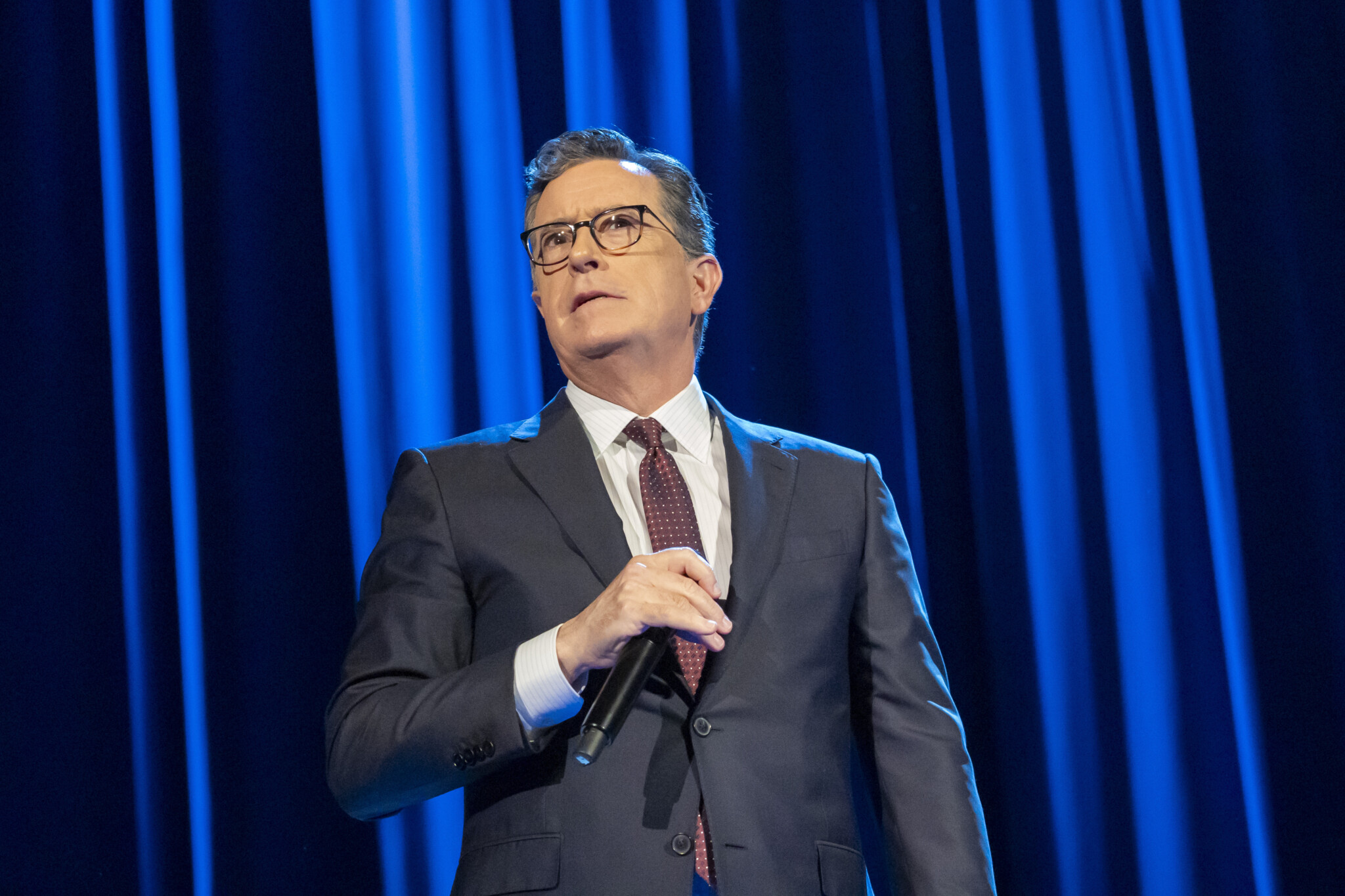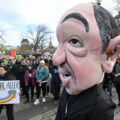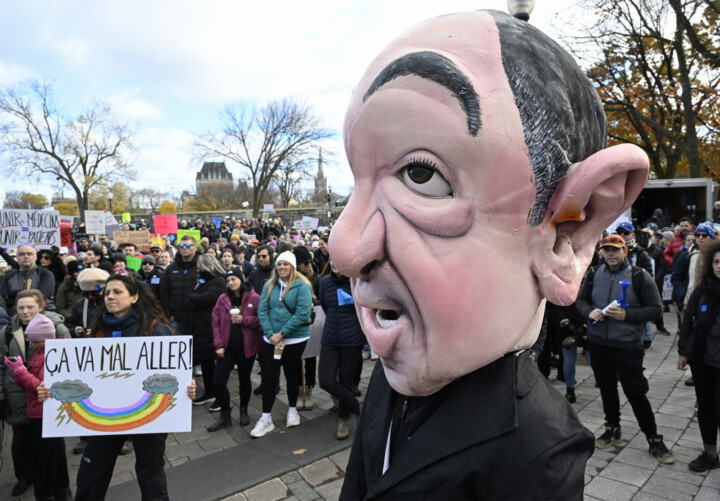The funniest thing about the Late Show episode where host Stephen Colbert announced his show was being cancelled was that his headline guest that night was Senator Adam Schiff—was this an afternoon guest spot on MSNBC or a late-night comedy show? That unsuspecting viewers could confuse the two is a sad illustration of how far the show had fallen. It was unintentional self-satire, and the only laugh the episode earned.
The Late Show with Stephen Colbert is a perfect distillation of everything that went wrong with mainstream comedy over the past decade: jokes replaced by talking points, laughs substituted with applause lines, and comedians more eager to affirm than amuse. It wasn’t always this way. For decades, late-night television had an irreverent edge. David Letterman poked holes in celebrity self-importance, Jay Leno made middle-America wisecracks that actually landed. But over time, the nightclub stage became a pulpit. Comedians stopped being court jesters and became court clerics, reciting the new orthodoxy back to the crowd in exchange for clapter.
The night before Colbert delivered the news that his show was being cancelled, Shane Gillis reminded the world that people still want to laugh. As ESPYs host, he told real jokes and said the unsayable. He made a P. Diddy joke. He took a jab at the WNBA and the audience’s collective pretense of caring about it. He even closed with a tribute joke to the late Norm Macdonald, the ultimate fearless ESPYs host, recreating one of Norm’s most infamous lines, originally directed at Charles Woodson: “The Heisman trophy, that’s something they can never take that away from you… unless you kill your wife and a waiter.” A legendary O.J. Simpson punchline, perfected by Norm: sharp, fearless, unapologetic. Gillis didn’t just deliver the line; he delivered a message: Comedy is back.
If there’s a historical gold standard for fearless comedy, it’s Norm. He didn’t care if the audience agreed with him. He cared if he was funny. Norm was the kind of comic who would rather bomb with the right joke than succeed with a safe one.
When legendary Saturday Night Live writer and long-time Norm muse Jim Downey appeared on Conan O’Brien’s podcast in 2023, he reflected on this philosophy. Norm, he said, “refused clapter” and was completely unwilling to deliver a joke he thought was pandering. He was willing to make people uncomfortable if it meant staying true to a bit he believed in. That instinct got him fired from SNL, ostracized from polite media circles, and revered by every real comedian.
Gillis is cut from the same cloth. He was fired from SNL before his debut when offensive comments on old podcasts triggered a pile-on from the cultural enforcers. And like Norm, he was eventually invited back to host the show, not because he changed, but because the world did.
When Norm died, many feared that his style of comedy—strange, brave, and shocking—would die with him. But Gillis carries that same torch, even as he finds himself in the very spaces that once exiled him.
Gillis understands that delivering true, honest comedy means getting close to the edge. He doesn’t coast on ideology, doesn’t build routines out of shared smugness. He takes risks, pushes boundaries, and dares the crowd not to laugh. That instinct—to chase the joke, not the approval—is what makes his comedy feel alive in a landscape full of caution and hedging.

Comedian Shane Gillis throws out a pitch before a baseball game between the Philadelphia Phillies and the Texas Rangers, Wednesday, May 22, 2024, in Philadelphia. Matt Slocum/AP Photo.
This is the quiet refutation to the clapter crowd. It’s not touching on politics that makes Colbert and his ilk unfunny. Gillis does that too. The difference is, Gillis is telling jokes, not delivering a lecture; he is political without being preachy, incisive without being mean. Where the Colbert cohort insist upon themselves, cloaked in sanctimony as they say their political points are more important than being funny, Gillis shows that the best jokes do both, skewering cultural pretensions without sliding into partisan bitterness. They can expose contradictions, puncture pretensions, and hold up a mirror, all while resonating across political lines.
Take his bit about “Fox News dads,” or the line about how he’s “not a Republican right now, but can feel it coming.” These aren’t just funny, they’re revealing. They say something about the strange tribal positions people end up inhabiting, and how cultural identity bleeds into personal identity. The jokes land not because they flatter, but because they sting—and then make you laugh.
His comedy is proof that humour, when it’s good, doesn’t need to be didactic to be meaningful. It just needs to be fearless.
For the better part of 10 years, it felt like mainstream comedy was gone. In its place were TED Talks in black box theatres. Specials like Nanette or Off With His Head weren’t measured by laughs but by headlines. Comedians who didn’t get the memo were shamed, cancelled, or pushed out of the spotlight. The proponents of this new orthodoxy don’t realize that their religion cannot abide comedy, because every joke risks heresy. The woke creed is humourless, not by accident, but by design.
But comedy didn’t die. It just left the studio.
It moved online, and audiences followed. It showed up on Kill Tony, This Past Weekend, and Matt and Shane’s Secret Podcast. It found life in dingy clubs and YouTube channels. While major media players tried to re-engineer humour to fit within the new sermonizing orthodoxy, the internet kept the flame alive. Audiences didn’t stop wanting to laugh; institutions just stopped knowing how to make them.
The rise of clapter was as culturally corrosive as it was financially disastrous. Even as Colbert remained the face of broadcast late-night, his show trailed Gutfeld! on Fox News in total viewership. He led his political peers by default, not dominance, as his audience halved and then halved again during his tenure. The Late Show was reportedly losing CBS more than $40 million US a year. A 200-person team producing political infotainment that fewer and fewer people found entertaining. The jokes, what few remained, weren’t drawing viewers.
That’s what makes Gillis’ rise so instructive. He wasn’t handed a network budget, a legacy slot, or a preexisting audience. He built everything from the outside and from the ground up. A podcast, a voice, a following. And by the time the institutions noticed him again, it wasn’t because he’d been reformed. It was because his swelling audiences never left.
His ascent matters. It signals the cultural pendulum might be swinging back. That comedy, real, risky, revealing comedy, still has a place on big stages and in the hearts of audiences.
The cancellation of Colbert’s show is a cultural marker. The end of a movement that once stood for satire but died chasing applause. And while the cameras will keep rolling for a few more months, the ending has already been written: the epitaph will be solemn applause, not uproarious laughter.
Gillis, by contrast, never asked to be let back in. The big players came back to him not out of magnanimity, but because they had no choice. The audience had left the networks to follow Gillis, not the other way around.
And when the institutions (the ESPYs, SNL, the streaming platforms) finally came calling he walked through the door with the same grin and the same jokes. Unchanged. More than a comeback story, this is a reminder of what comedy is for.
That’s not just good news for comedians. It’s good news for everyone, because laughter is the sound of liberty.








